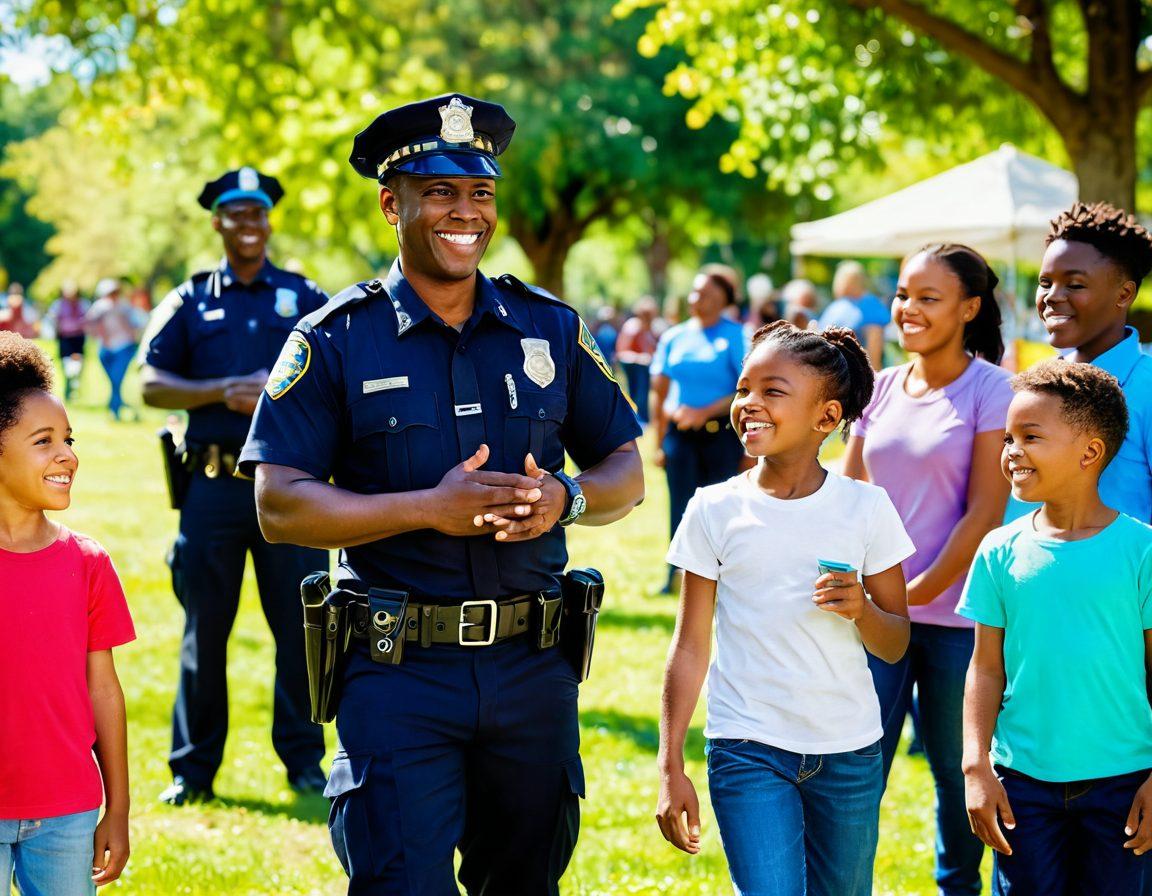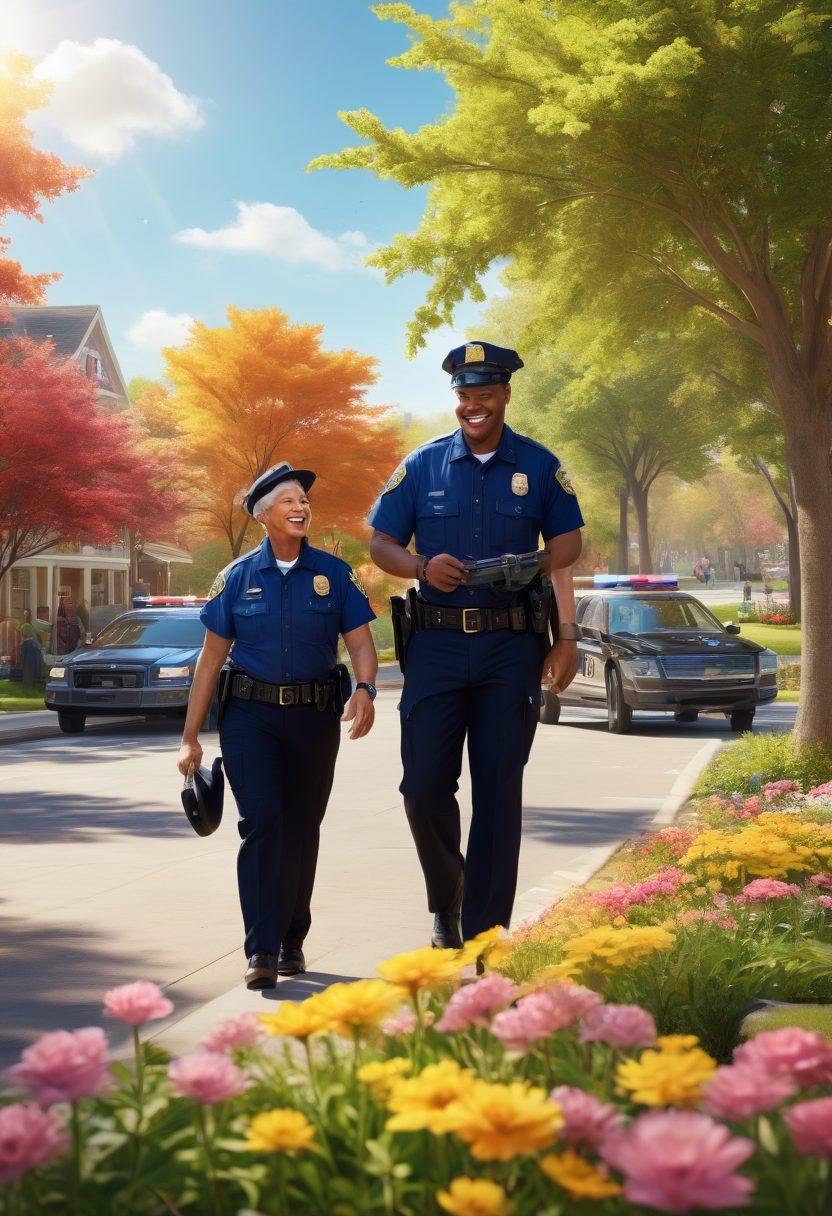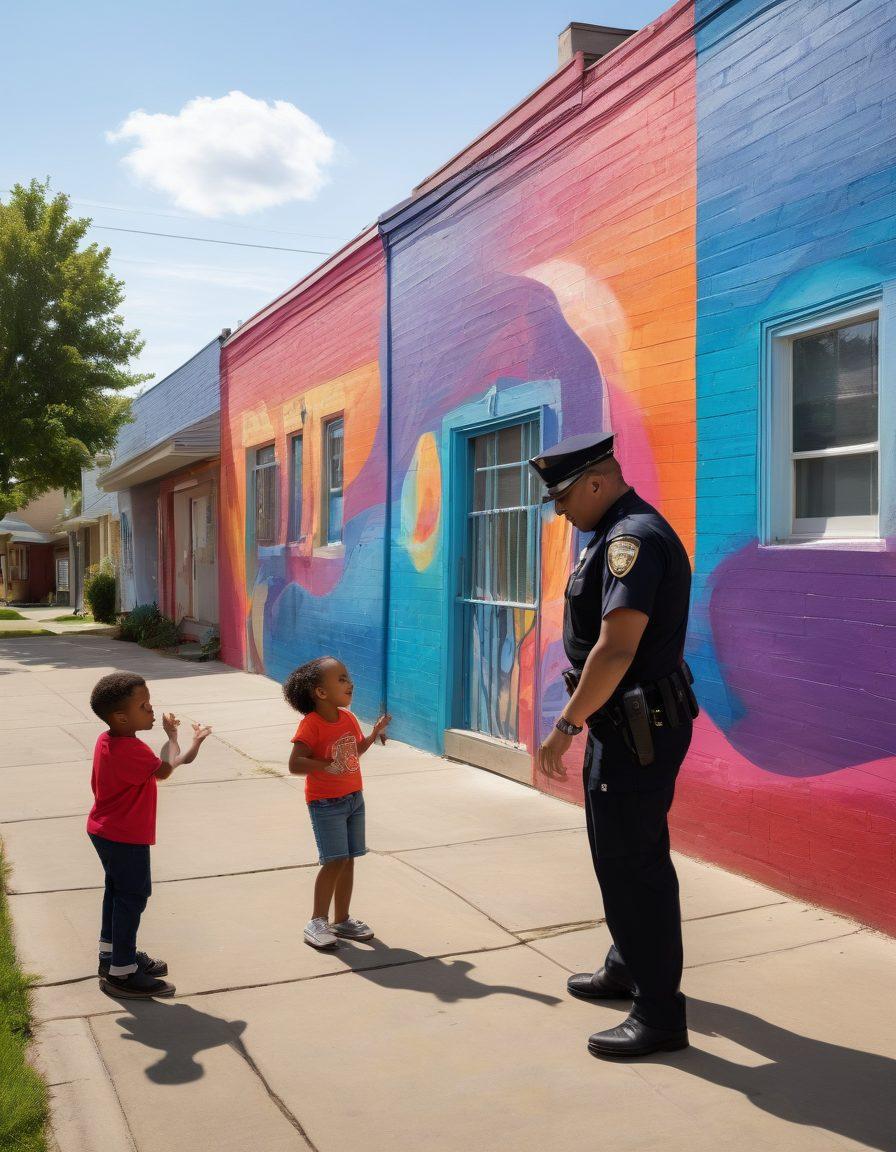Fostering Joy: How Positive Policing Enhances Community Safety and Trust
In an age where interactions with law enforcement often evoke apprehension, the emerging concept of positive policing presents a refreshing shift. Imagine a world where police officers are viewed more as community partners rather than mere enforcers of law and order. This isn’t just a dream; it’s an attainable reality shaped by initiatives that promote positive interactions between the police and the community. In essence, positive policing aims to foster community trust and joy through supportive and proactive measures in maintaining public safety. After all, when citizens feel safe, they are happier, establishing a foundation of peace and joy throughout the community.
What if I told you that police-citizen interactions could be filled with joy rather than tension? The national police forces around the globe are increasingly recognizing that their roles stretch beyond enforcing laws; instead, happiness and social well-being should be at the forefront of their operations. Programs that prioritize citizen engagement embody the essence of positive policing. When officers attend community events or engage in conversations with residents, it creates a vibrant atmosphere conducive to building bridges of trust. These connections help dissolve the barriers that often exist between law enforcement and the very citizens they are sworn to protect.
Consider this: When communities view their police as happy, approachable allies, the impacts ripple throughout society. The pursuit of crime prevention becomes not an adversarial pursuit, but a collaborative effort. A joyful law enforcement approach enhances police community relations, making it easier for police to gather vital information and for citizens to feel safe reporting crimes. By focusing on felicity in policing, the positive relationship between police and community not only helps control crime but also uplifts the community, paving the way for greater social connections. What could be better than a community thriving in both safety and happiness?
Engaging with the public is crucial, but how can we further ensure these relationships flourish? Developing programs that encourage police officers to act as peacekeeping forces can significantly enhance community trust. Initiatives that showcase the police not just as authority figures but as pillars of support and stability can lead to a significant transformation. Imagine a neighborhood where officers work closely with residents, offering resources and assistance that promote safety and happiness. As they build rapport, the line between authority and the community blurs encouraging collaboration for the greater good.
As we reflect on the potential for positive policing, it becomes clear that the role of the national police is evolving. By committing to building trust within communities, they are not just enforcing laws but nurturing environments where happiness can flourish. When safety and joy go hand in hand, we foster communities that not only comply with laws but also advocate for them. So the question remains: are we ready to embrace this new era of policing? Will we support our law enforcement in their quest for a more joyful and engaged relationship with our society? Together, we can foster an atmosphere where community trust thrives, ensuring both public security and a brighter, happier future for us all.
Joyful Law Enforcement: Enhancing Public Security Through Happiness in Policing
In a world where crime rates can seem overwhelming and community trust in law enforcement repeatedly comes under fire, one might wonder: is there a way to turn the tide? What if I told you that the secret lies not in higher arrests or stricter laws, but rather in something as simple and profound as happiness? Enter the concept of joyful law enforcement, a movement that blends community safety with a commitment to uplifting social well-being. It’s a concept promoted by the policia nacional, aimed explicitly at creating an environment that fosters trust and positive policing.
Imagine walking down your neighborhood street and seeing happy police officers smiling and engaging with the community. This is the vision behind the initiatives from national police departments worldwide, adopting a proactive approach to policing that emphasizes the importance of citizen engagement. With a focus on building community trust, these peacekeeping forces are not just enforcing law and order; they are embarking on a journey to make citizens feel secure and valued. How can we embrace this change? By promoting a culture of felicity in policing, we can redefine the interactions between police and citizens from mere obligatory encounters to meaningful connections.
What role does joy play in crime prevention? Quite a significant one, it turns out! Studies suggest that when officers demonstrate a positive attitude, the community responds in kind. When you see a happy police officer patrolling your neighborhood, it instills a sense of safety and happiness within you. This ripple effect encourages citizens to approach the police, fostering rich police community relations. Could there be a more empowering way to address public security than through collaborative efforts that put a premium on positivity? Let’s explore how these efforts create stronger ties in our communities!
To further illustrate this point, consider this quote by a community leader: 'Trust in police is not granted; it's earned through consistent positive interaction.' It highlights the heart of joyful law enforcement. By investing in supportive policing strategies that prioritize happiness among officers and citizens alike, we shift the focus from punitive measures to proactive measures. Ultimately, this means enhanced community safety and a reduced fear of crime. When officers engage with the community positively—through community events, youth programs, or just friendly hello’s—it opens the door to a new realm of trust, allowing the police to gather valuable information about crime prevention too.
So, how can we, as members of our communities, contribute to this narrative? By actively participating in community safety initiatives and encouraging open dialogue with local law enforcement, we can help pave the way to effective citizen engagement. Each one of us can play a part in fostering this meaningful interaction, whether it's attending a neighborhood meeting or simply thanking an officer for their efforts. Remember, law enforcement positivity is not solely the responsibility of the police; it’s a collaborative effort rooted in respect, connection, and a shared vision for a safer, happier community ignited by trust.
The Ripple Effect: How Supportive Policing Cultivates Safety and Felicity in Our Communities
In an age where news stories often highlight conflict between law enforcement and communities, it might be hard to imagine a world where the roles are reversed. Picture this: a friendly neighborhood officer greets the children on their way to school, shares a laugh with the local shopkeeper, and even organizes a community barbecue. This image embodies the concept of supportive policing, where national police engage positively with citizens to foster not only safety but also happiness. It raises an important question: how can law enforcement become a force for joy in our lives?
The ripple effect of supportive policing can be profound. Just as a pebble thrown into a pond creates waves, positive interactions between the police and the community can spread trust and goodwill throughout society. When police engage in citizen engagement activities, they cultivate community trust, enhancing public security while simultaneously nurturing a sense of social well-being. Consider the phrase, 'A happy police is a productive police.' When peacekeeping forces feel connected and valued among the populace, crime prevention efforts become more Natural and effective. This bond leads to fewer conflicts and a more joyful atmosphere. How many lives could be changed if more officers chose to build relationships instead of walls?
A powerful illustration of positive policing comes from a small town, where the local police department has made it a priority to host regular community events. From safety seminars to weekend festivals, the police foster engagement that encourages citizens to meet the officers and share their concerns freely. This has led to a remarkable transformation in police-community relations. Crime rates have dropped, and the happiness of citizens has surged. In this case, one could see how joyous law enforcement not only improves safety but can also create an environment where felicity in policing thrives! It makes you ponder, wouldn't a little effort in creating friendly police interactions go a long way?
In the eyes of the community, a police officer's role transcends law and order; they become symbols of safety and happiness. This concept begs another reflection: What if every interaction with our police left us feeling reassured rather than apprehensive? A shift from traditional models of policing to approaches that emphasize a friendly presence can help to build community trust in the authorities. Moreover, when citizens see their police as partners in crime prevention and advocates for well-being, it radically transforms social dynamics for the better. Could this lead to the decline of general cynicism that surrounds law enforcement?
Ultimately, supportive policing cultivates a culture where happiness is prioritized alongside safety, leading to a healthier community. It encourages cooperation, understanding, and faithfully trust in the people sworn to protect us. The positive outcomes of such initiatives are not mere aspirations but tangible realities. Let's reflect on how we can each play a part in supporting this vision. How can we engage with our police departments in ways that foster joy, trust, and community safety? Perhaps it all begins with a simple hello, a community watch, or attending a local police-community event. After all, when police and community members come together with the spirit of joy, everyone benefits.


